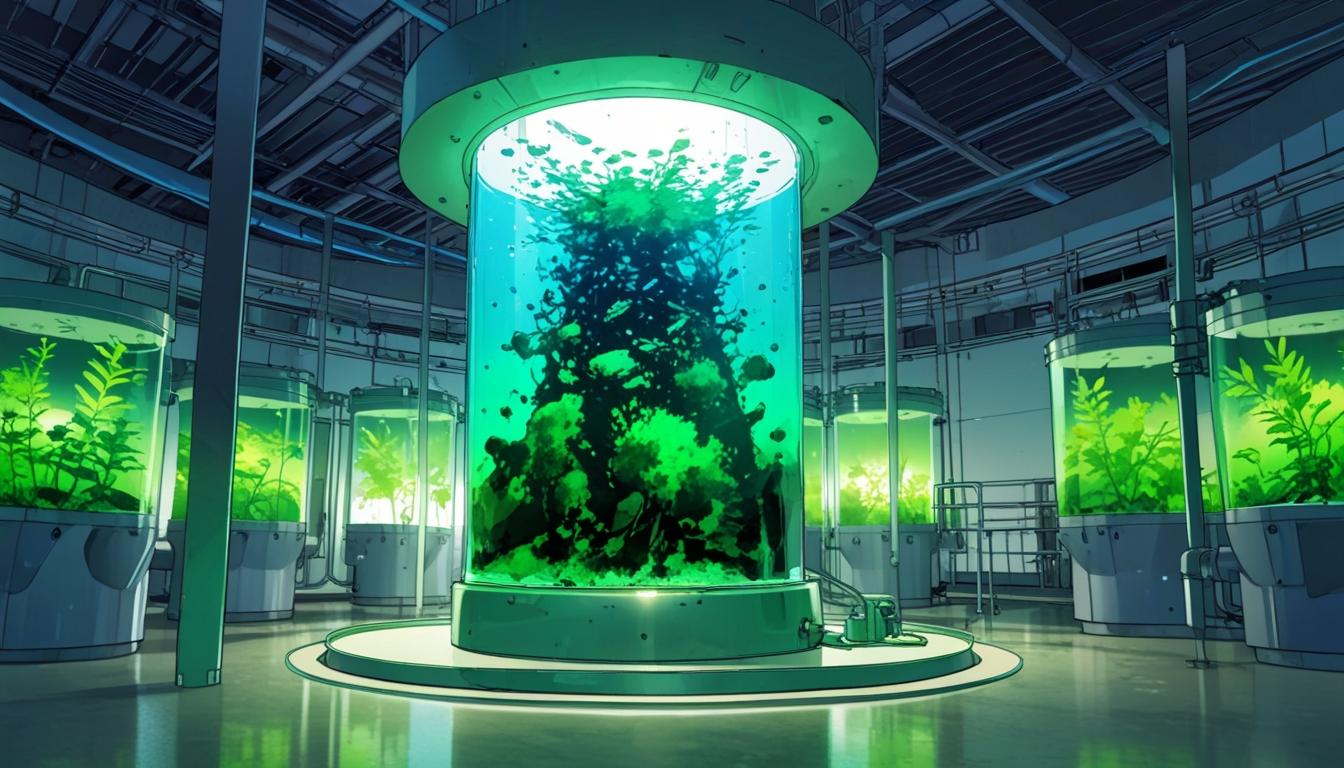ScotBio's Spirulina Innovation: Transforming Algae into High-Value Food Ingredients
ScotBio, a pioneering Scottish biotech start-up, is poised to revolutionise the food industry with its latest innovation—a high-value food ingredient derived from spirulina, a blue-green microalgae celebrated for its "superfood" attributes. This new product emerges from a collaboration with researchers at the Scottish Centre for Food Development and Innovation (SCFDI) at Queen Margaret University, marking a significant step forward in the sustainable food production landscape. With the backing of feasibility funding from the Industrial Biotechnology Innovation Centre (IBioIC), ScotBio aims to redefine the nutritional profile and commercial viability of spirulina in various food applications.
The new spirulina protein operates alongside ScotBio's flagship products, including SupaBlu—a pioneering spirulina-derived natural food colourant—and fresh, raw spirulina, which boasts three times the bioavailability of powdered forms. Such advancements are aimed at tapping into markets previously dominated by imported goods, filling a critical gap in the UK supply chain. Recently, ScotBio shifted to a purpose-built facility designed to scale up production using LED reactors, optimising conditions for consistent and nutritionally superior algae growth.
This strategic move has opened significant opportunities beyond the traditional markets associated with spirulina, such as health and wellness sectors, furnishing producers with innovative alternatives. Research conducted by ScotBio's team has evaluated the protein's functional characteristics, exploring its emulsifying and binding properties in a variety of recipes crafted based on consumer feedback. Intriguingly, results have suggested that this plant-based protein could rival the functionality of established ingredients, including egg and soy proteins. Remarkably, even when its natural colour and flavour are removed, the spirulina-derived protein maintains its effectiveness, establishing itself as a versatile option with minimal influence on final product taste or presentation.
One of the standout advantages of spirulina-derived protein is its allergen-free nature, distinguishing it from many synthetic alternatives. The controlled indoor cultivation approach also mitigates risks associated with traditional agriculture, including variability caused by weather and seasonal constraints, while significantly reducing land and resource requirements. Dr Joe Palmer, product development manager at ScotBio, expressed enthusiasm about the progress, stating, "Our process is unlocking possibilities for plant-based food products, offering a healthy and sustainable alternative to traditional ingredients." He emphasised the potential of this ingredient to create new revenue streams and investment opportunities, while addressing the growing demand for sustainable protein sources in the UK.
ScotBio's commitment to sustainability aligns with broader industry trends spotlighting the potential of algae in food production. Recent analyses indicate that the global spirulina protein market is not only burgeoning but is projected to reach a staggering $850 million by 2030, with significant growth predicted at a compound annual growth rate (CAGR) of approximately 7% from 2022 to 2030. Factors contributing to this surge include increasing consumer awareness of the health benefits associated with spirulina, as well as its integration into diverse applications ranging from dietary supplements to personal care products.
Moreover, the company is exploring additional avenues for the commercialisation of spirulina—a pivot that acknowledges the growing interest in its antiviral properties. Collaborations with institutions like the University of Edinburgh and Robert Gordon University have positioned ScotBio to investigate the extraction of natural antiviral molecules from spirulina, building on preliminary success where these extracts demonstrated effectiveness against various viruses, including coronaviruses. Comments from Dr Palmer indicate a firm belief in the untapped market potential: "We can now work on recovering and purifying these molecules as high-value ingredients."
Annelie du Plessis, the senior business engagement manager at IBioIC, highlighted the broader implications of ScotBio's achievements. "Their success illustrates the significant role biotech start-ups play in advancing environmentally friendly ingredients and contributing to a circular economy," she noted. This focus on sustainability is not merely idealistic; it has been recognised as pivotal in meeting consumer demand for cleaner, more environmentally responsible products.
In conclusion, ScotBio’s innovative approach to utilising spirulina positions the company as a noteworthy player in the evolution of sustainable food production. By unlocking new functionalities and leveraging the unique properties of this microalgae, ScotBio is not only addressing immediate market needs but also setting a precedent for future developments in the food industry, all while contributing to the growing dialogue around sustainability and health-conscious consumer choices.
Reference Map:
- Paragraph 1 – [1], [2]
- Paragraph 2 – [1], [6]
- Paragraph 3 – [2], [4]
- Paragraph 4 – [1], [5]
- Paragraph 5 – [3], [5]
- Paragraph 6 – [1], [6]
Source: Noah Wire Services
